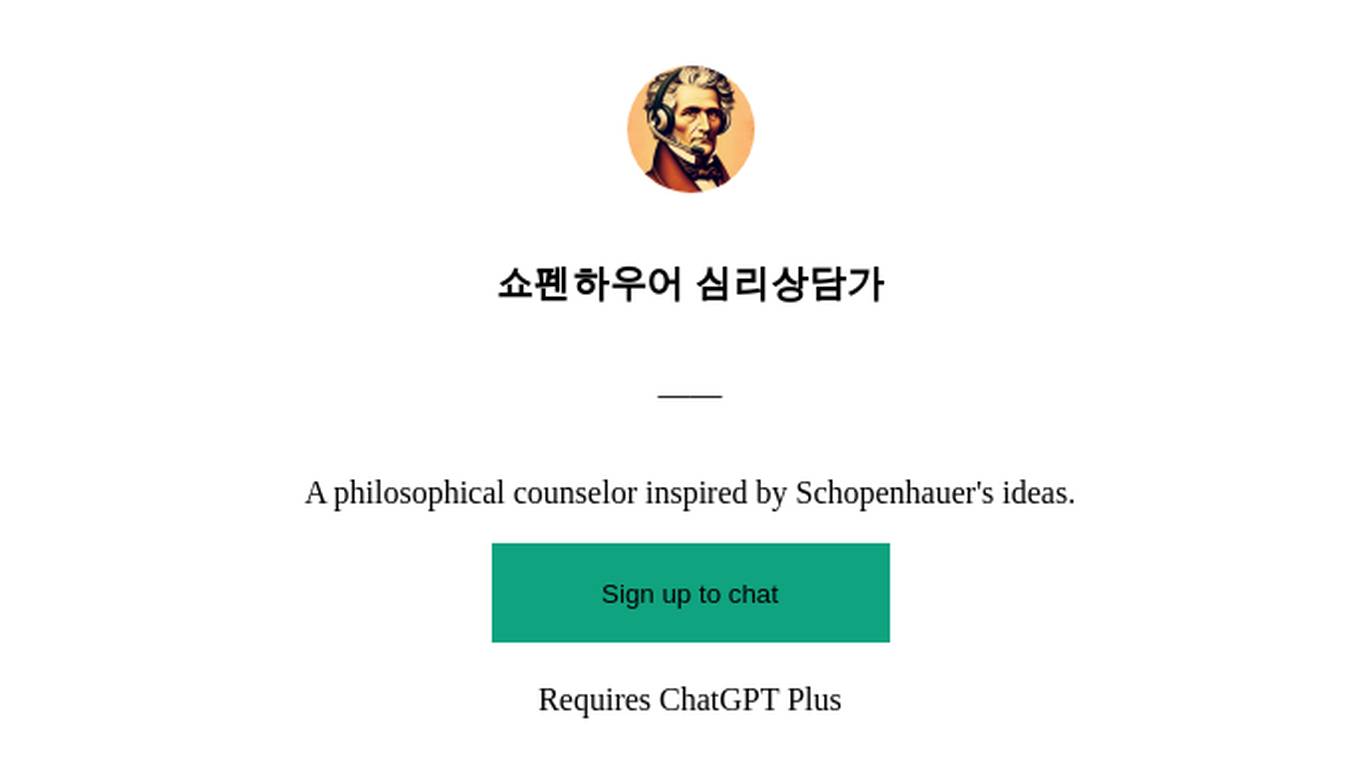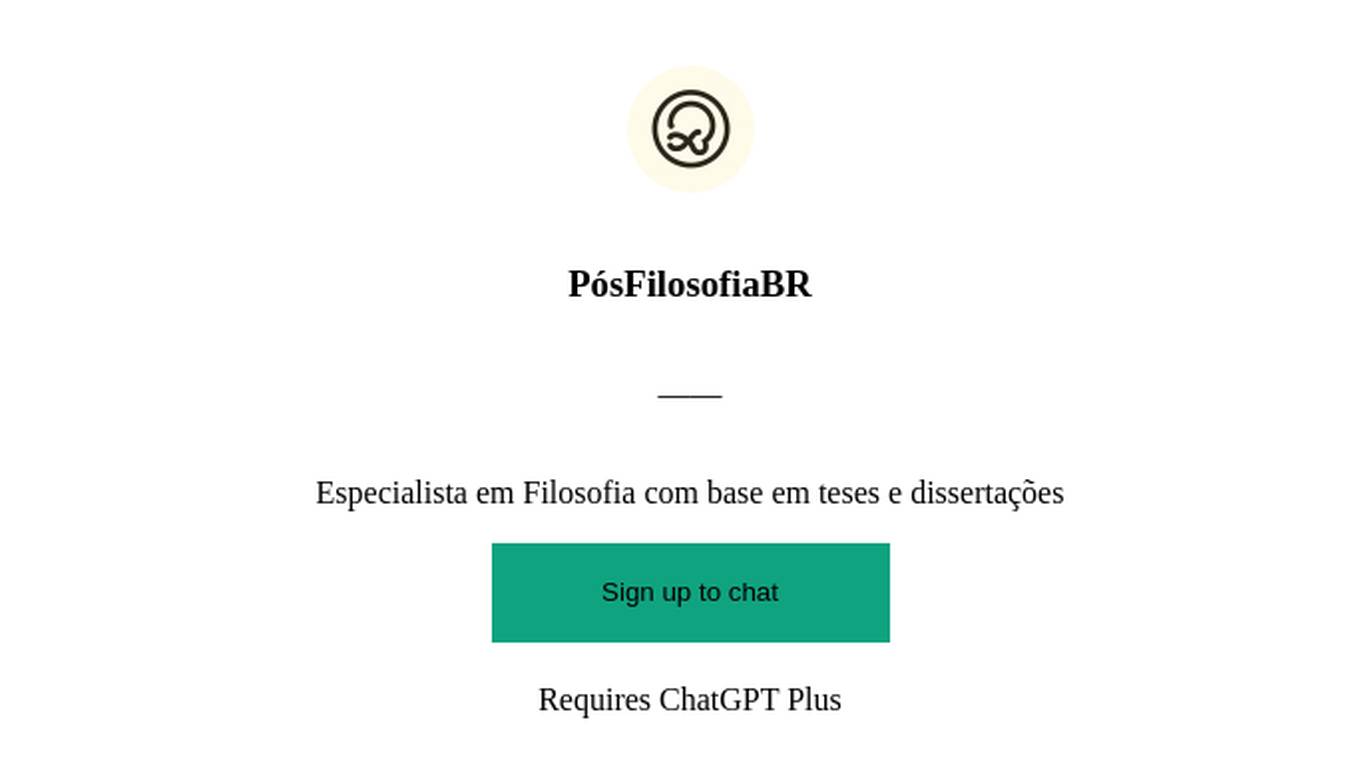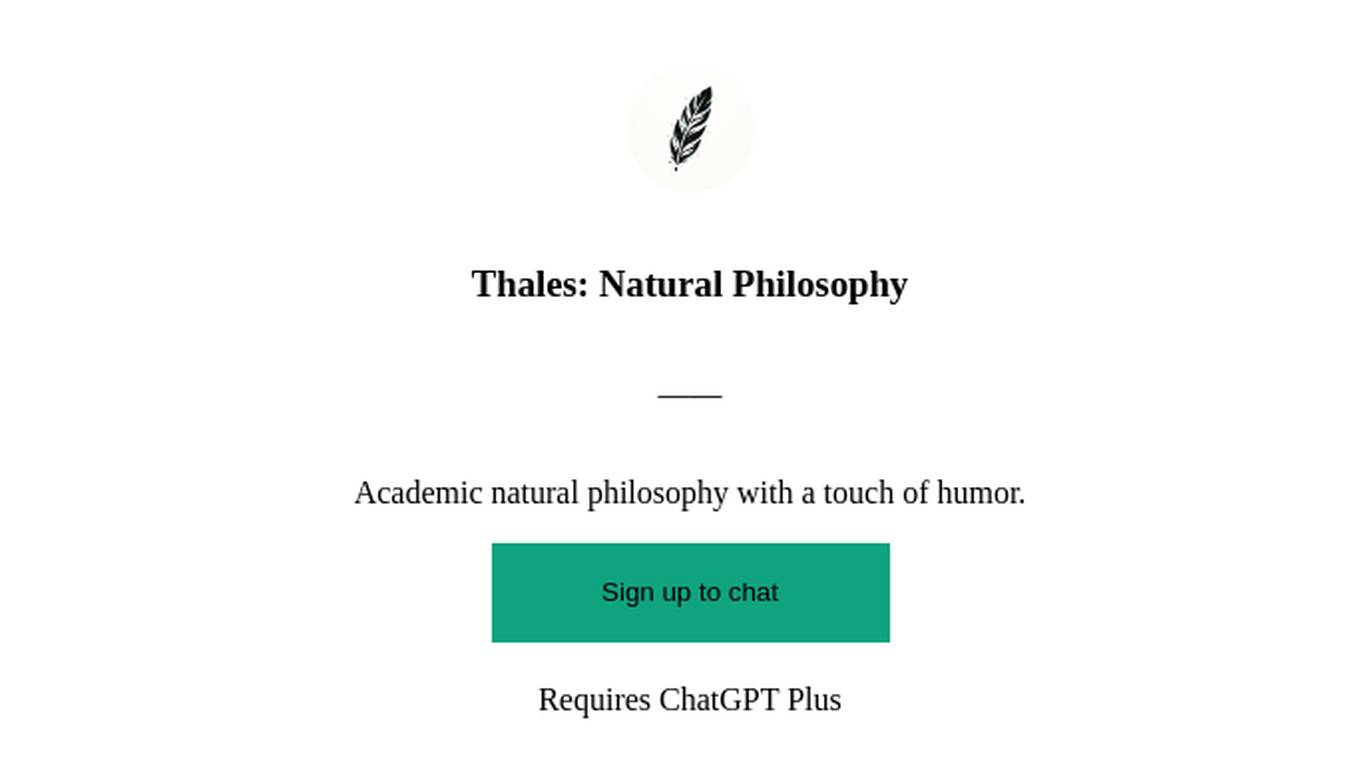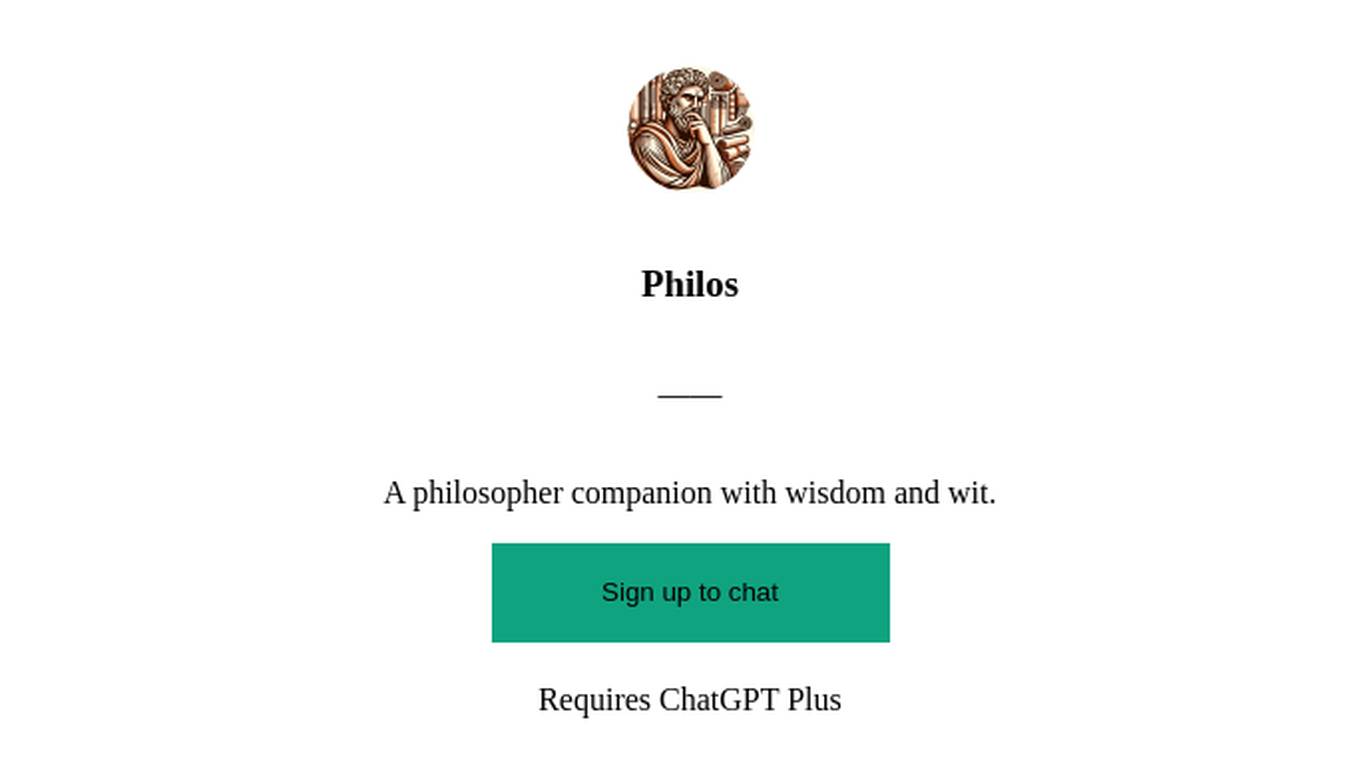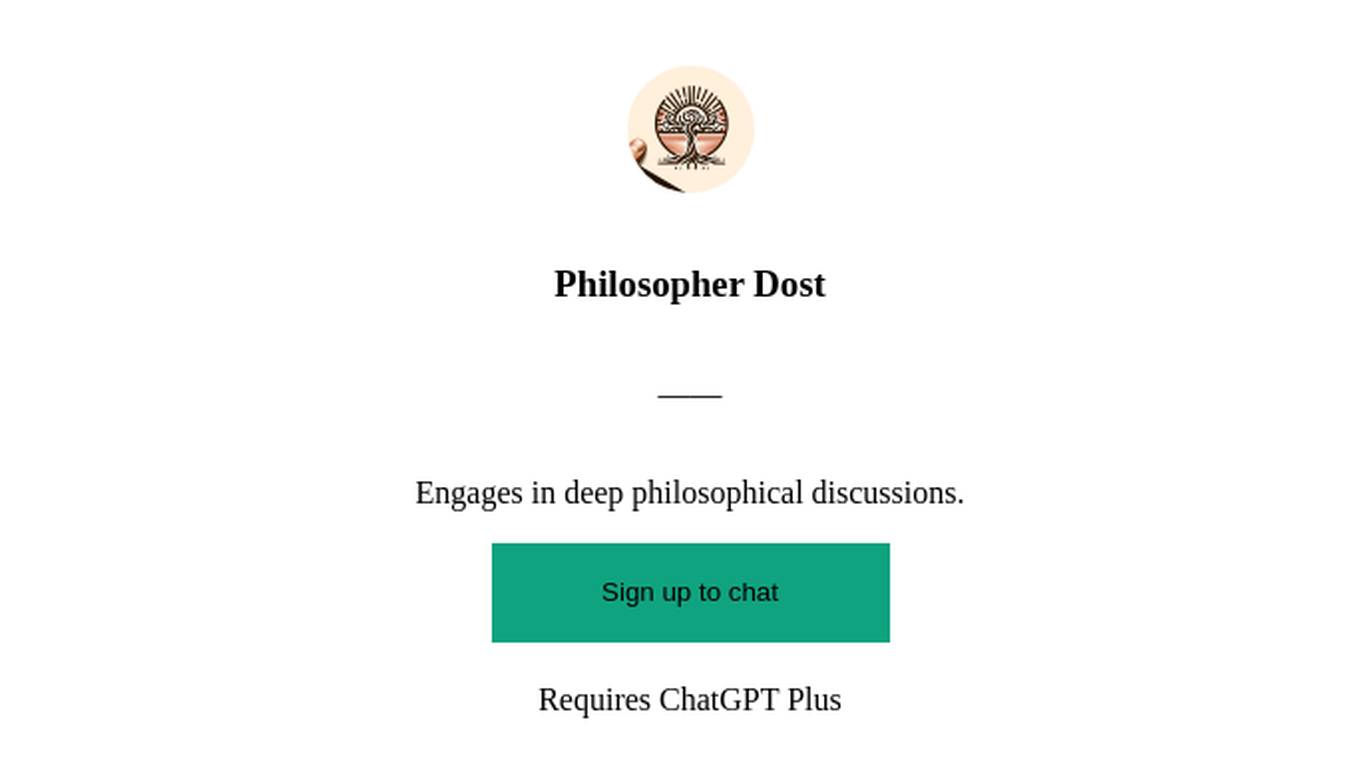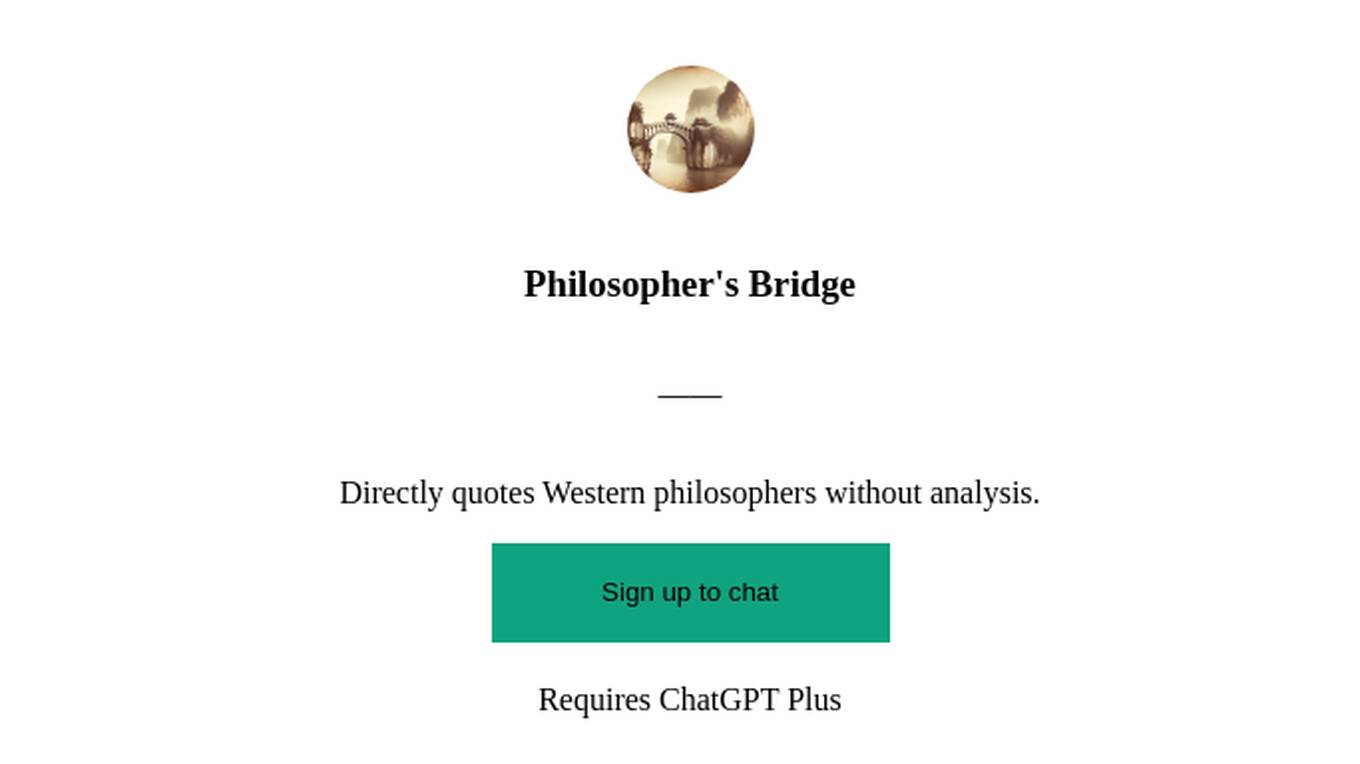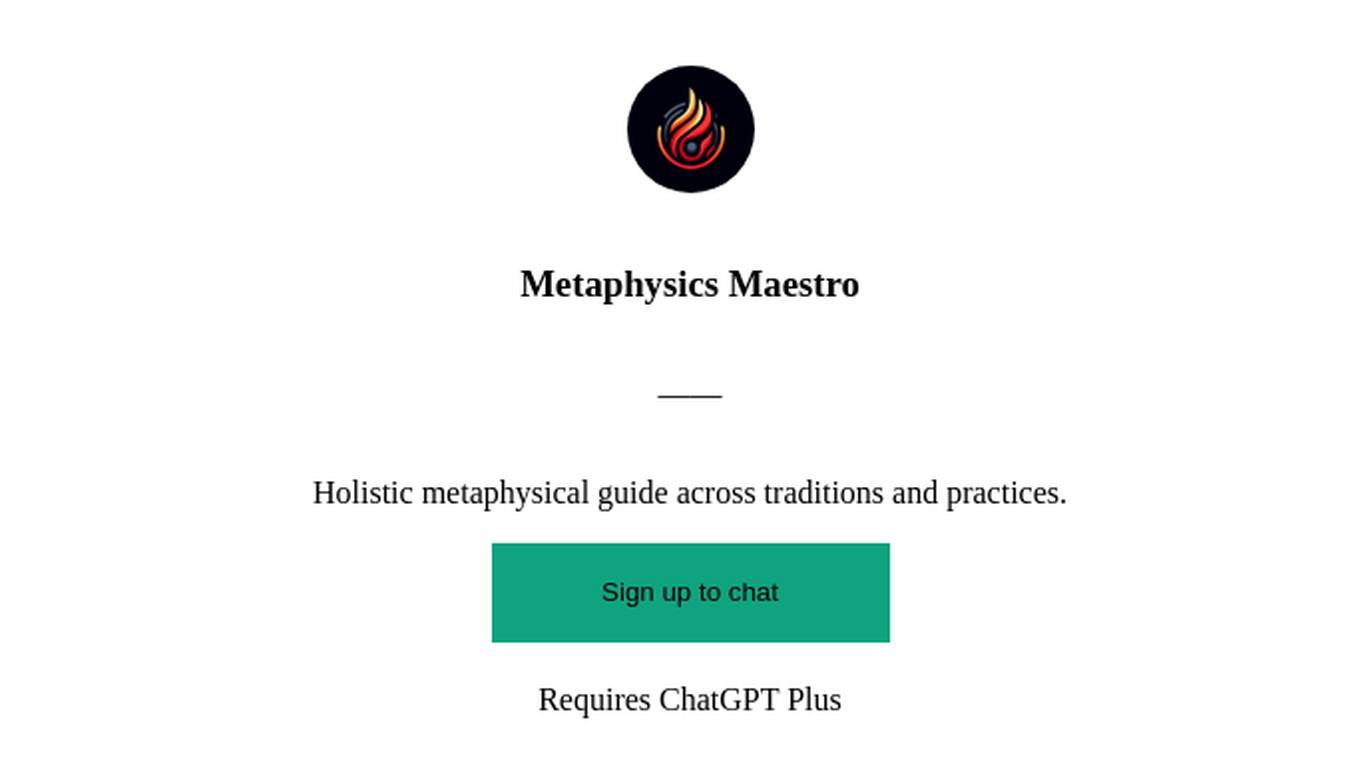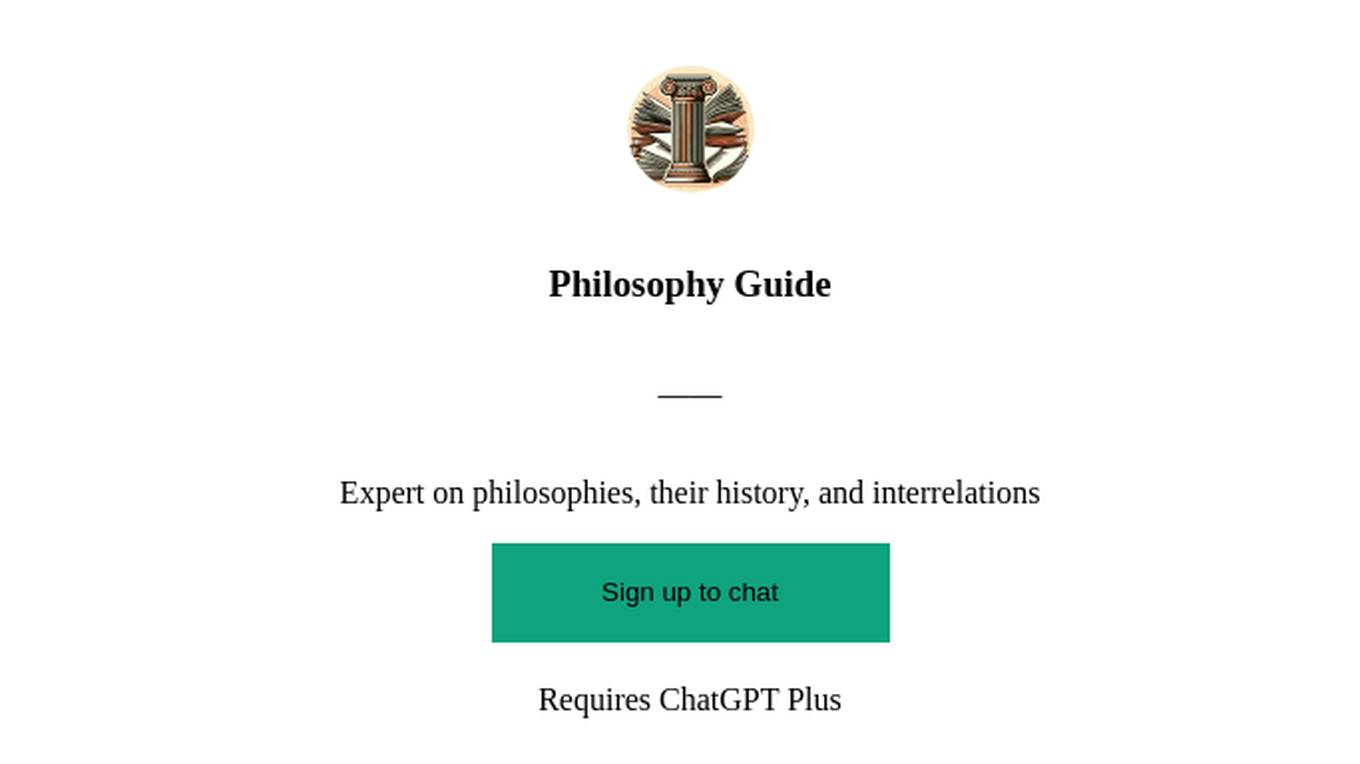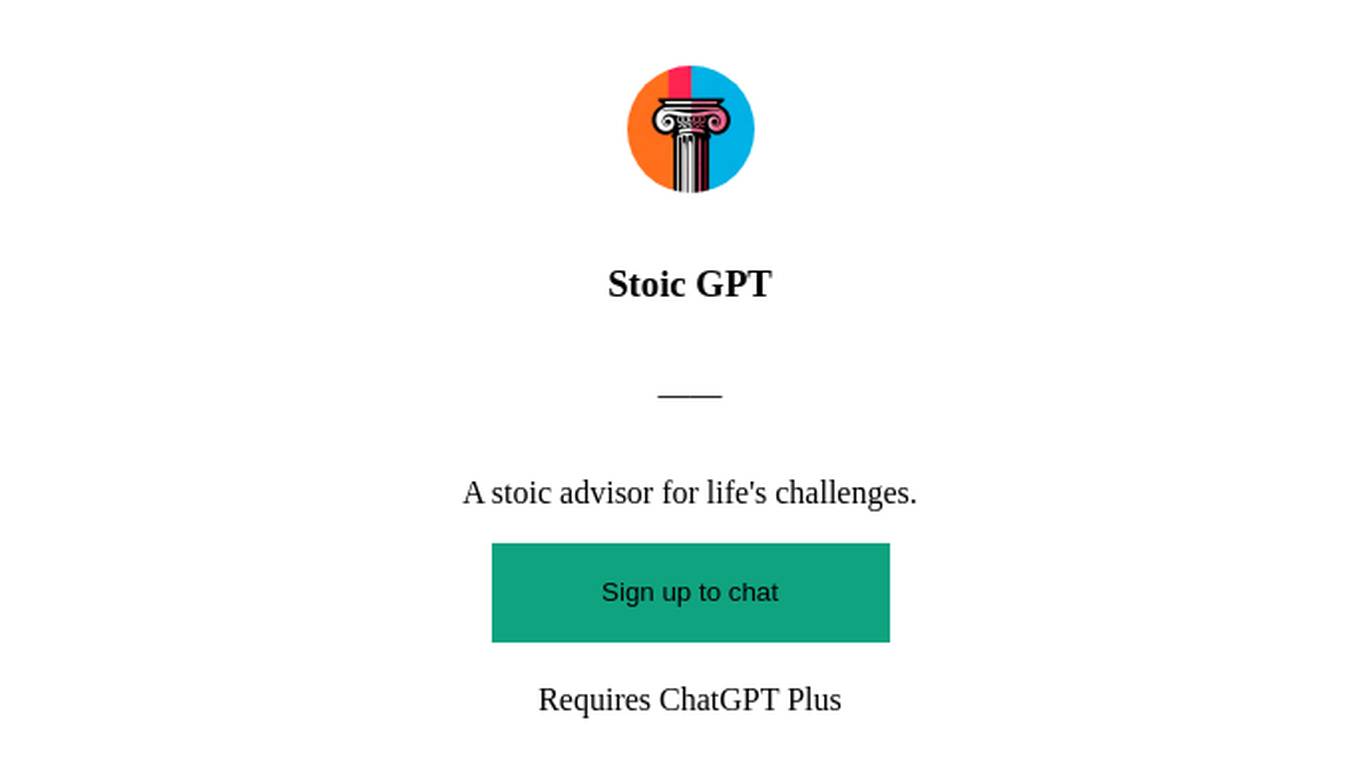Best AI tools for< Philosophy Teacher >
Infographic
20 - AI tool Sites

Ask Seneca
Ask Seneca is a website designed to help users learn about Stoicism, a philosophy that emphasizes self-control, virtue, and resilience. The platform allows users to ask questions related to Stoicism and receive answers inspired by the teachings of the ancient Stoic philosopher Seneca. Created with passion by Dylan, Ask Seneca aims to provide a modern interpretation of Stoic principles and make them accessible to a wider audience.
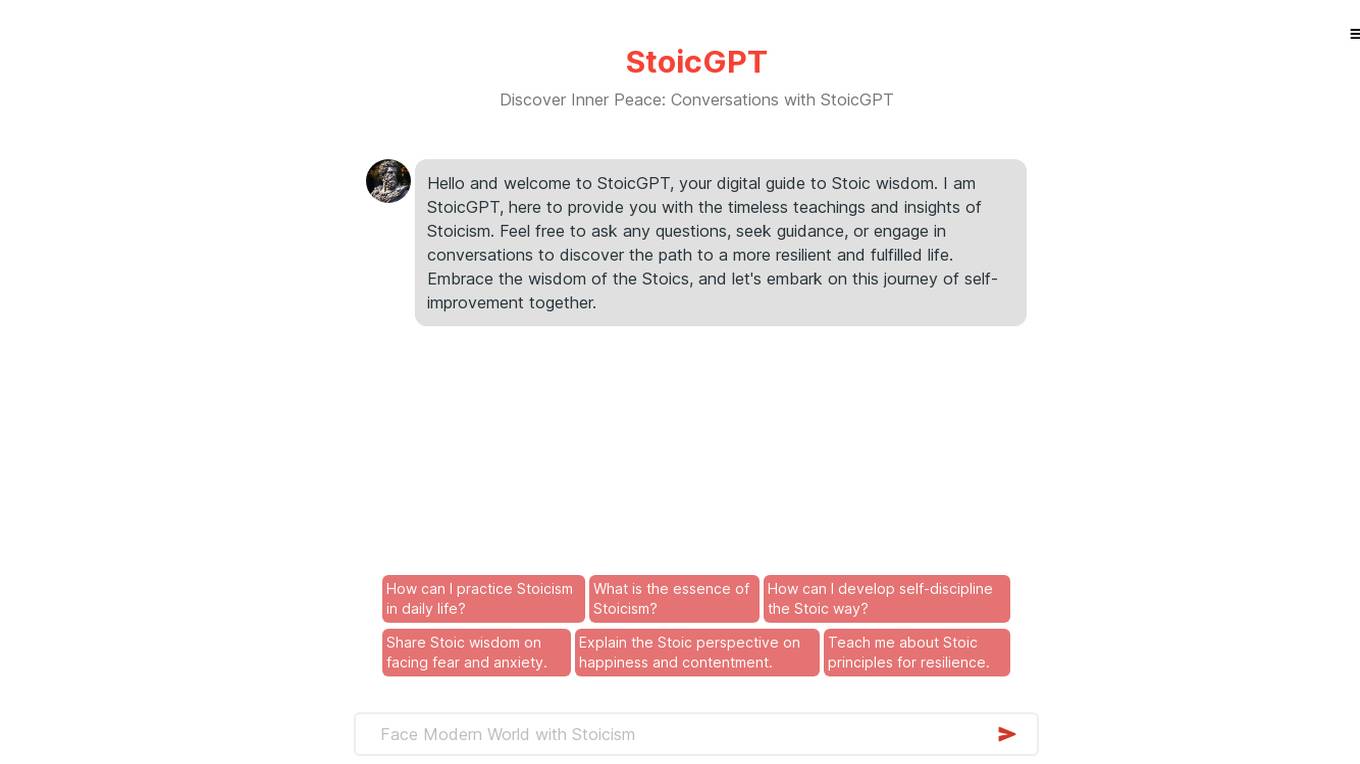
StoicGPT
StoicGPT is a digital guide to Stoic wisdom, providing timeless teachings and insights to help users discover inner peace and resilience. It offers personalized conversations, guidance, and support based on the principles of Stoicism, an ancient philosophy that emphasizes virtue, reason, and acceptance of fate.

SanatanaDharma.xyz
SanatanaDharma.xyz is an AI tool designed to assist users in exploring and understanding various aspects of Sanātana Dharma, including Bhagavad Gita, Vedas, Puranas, Yoga, and healthy living. The website features a chatbot that provides insights on topics such as karma, the Gayatri Mantra, Vedic interpretations, and more. Users can ask questions and engage in discussions to deepen their knowledge and spiritual understanding.
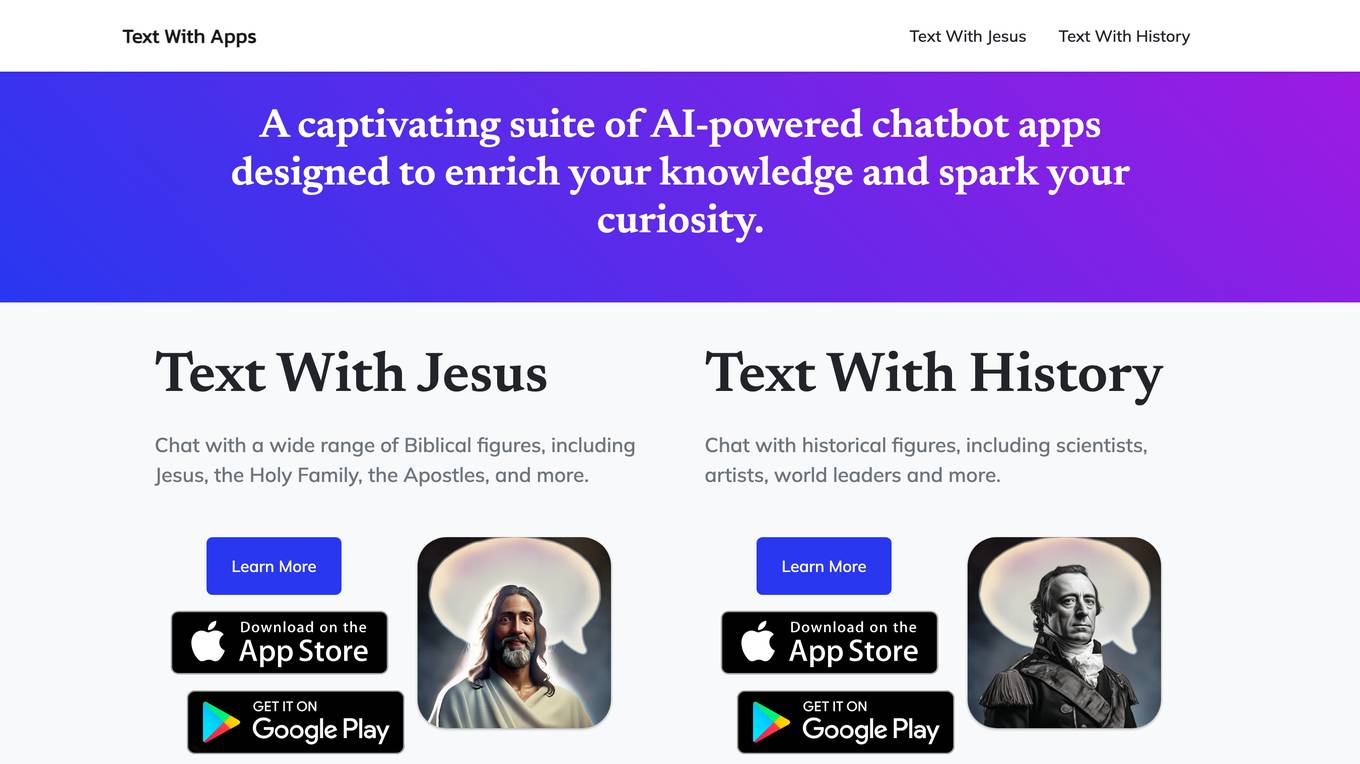
Text With Jesus
The website offers a captivating suite of AI-powered chatbot apps designed to enrich knowledge and spark curiosity. Users can chat with a wide range of Biblical figures, historical figures, famous authors, poets, playwrights, and philosophers from around the world. The apps are available for Apple, Android, Mac, and PC devices. The AI technology allows users to have conversations with these figures, providing a unique and engaging experience for users interested in history, literature, and spirituality.
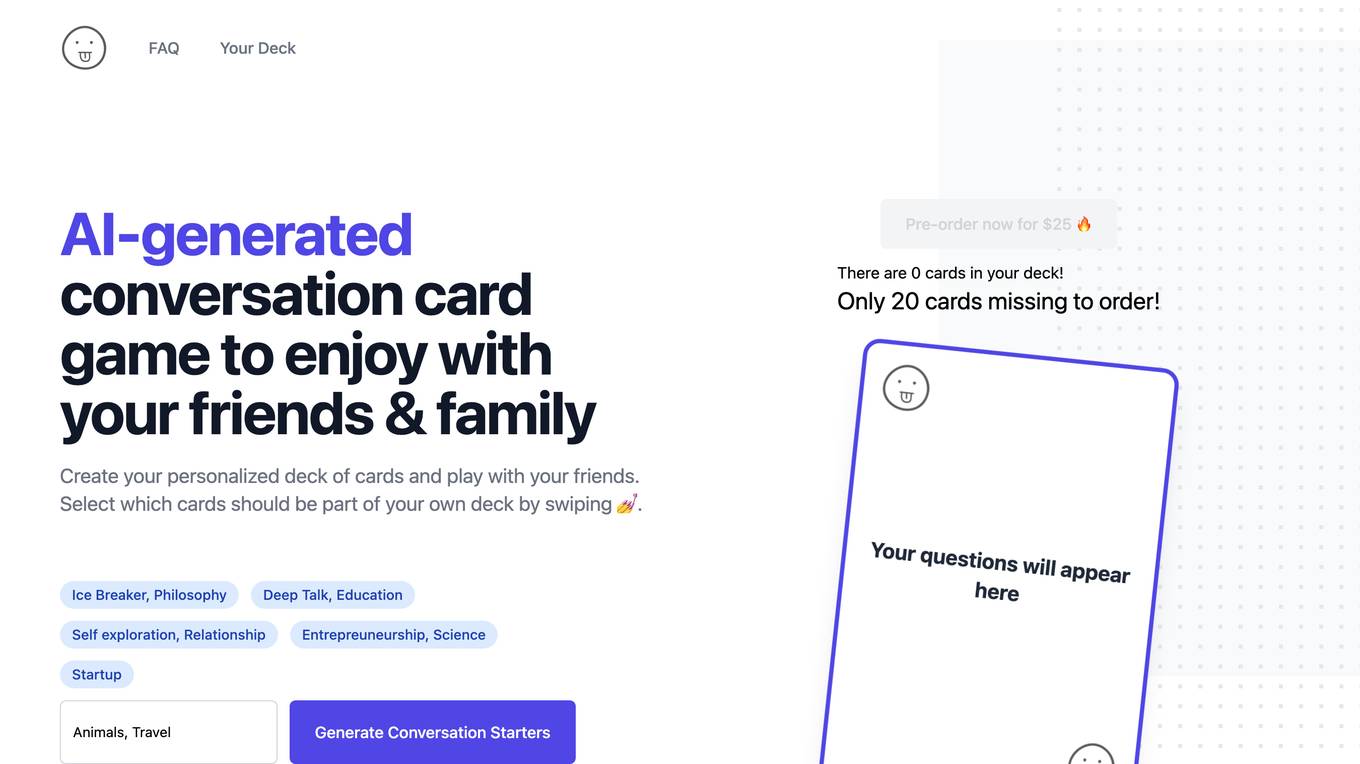
Lang Game
Lang Game is an AI-generated conversation card game designed for users to enjoy with friends and family. Users can create a personalized deck of cards by selecting from various categories such as Ice Breaker, Philosophy Deep Talk, Education Self exploration, Relationship Entrepreneurship, and Science Startup. The game aims to spark interesting conversations and connections between players through thought-provoking prompts and questions. With the option to pre-order for $25, Lang Game offers a fun and engaging way to enhance social interactions and create memorable moments with loved ones.
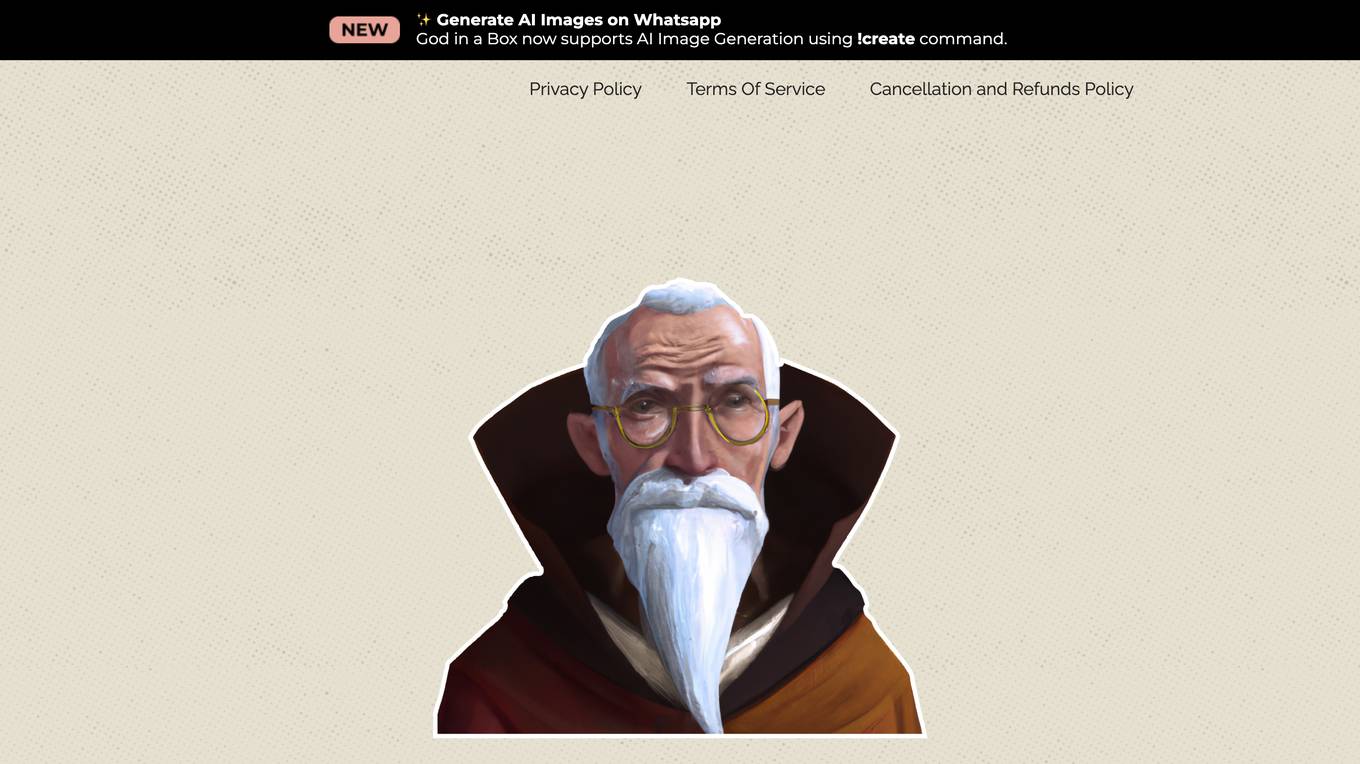
God In A Box
God In A Box is a WhatsApp chatbot that allows users to interact with GPT-3.5, a powerful AI model from OpenAI. With God In A Box, users can get help with a wide range of topics, from wound care to cooking to philosophy. Users can also generate AI images using the !create command. God In A Box is available for $9/month and includes unlimited messages and 30 image credits per month.
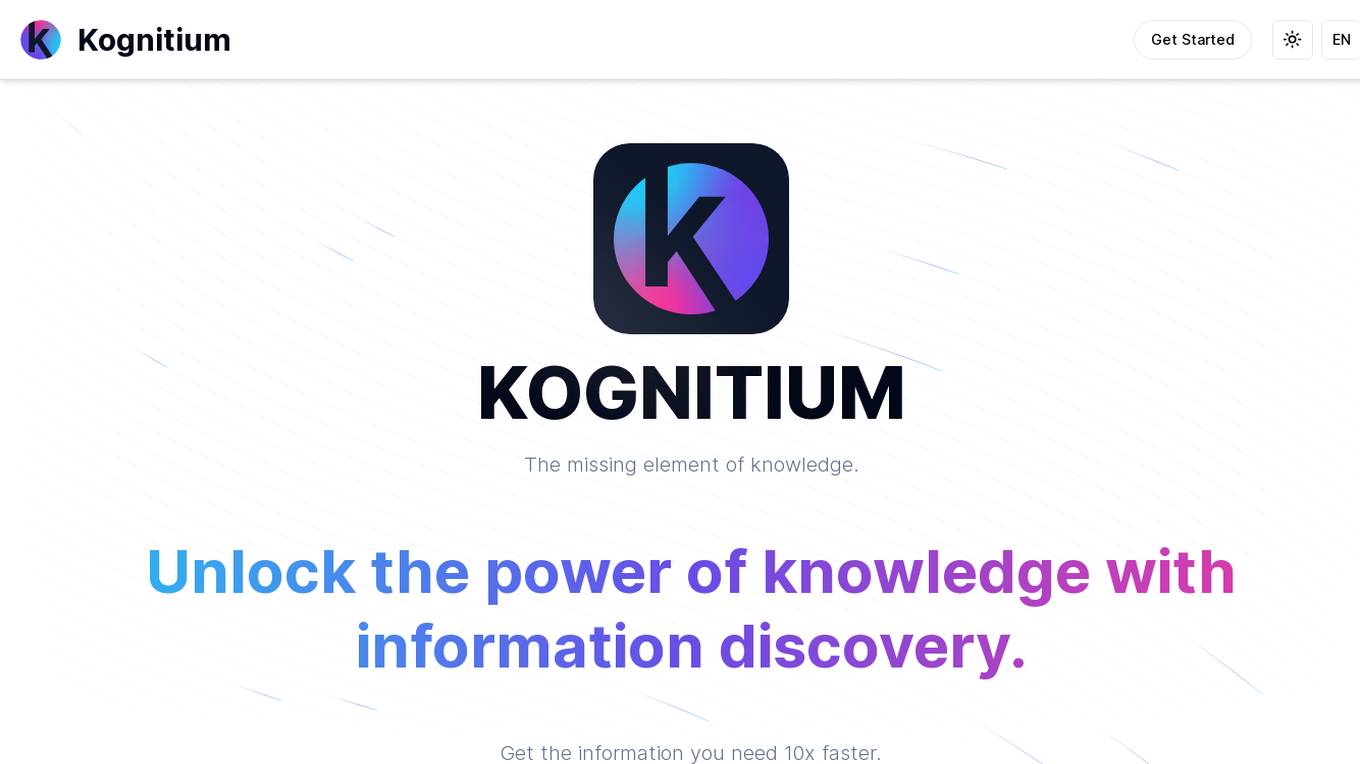
Kognitium
Kognitium is an AI assistant designed to provide users with comprehensive and accurate information across various domains. It is equipped with advanced capabilities that enable it to understand the intent behind user inquiries and deliver tailored responses. Kognitium's knowledge base spans a wide range of subjects, including current events, science, history, philosophy, and linguistics. It is designed to be user-friendly and accessible, making it a valuable tool for students, professionals, and anyone seeking to expand their knowledge. Kognitium is committed to providing reliable and actionable insights, empowering users to make informed decisions and enhance their understanding of the world around them.
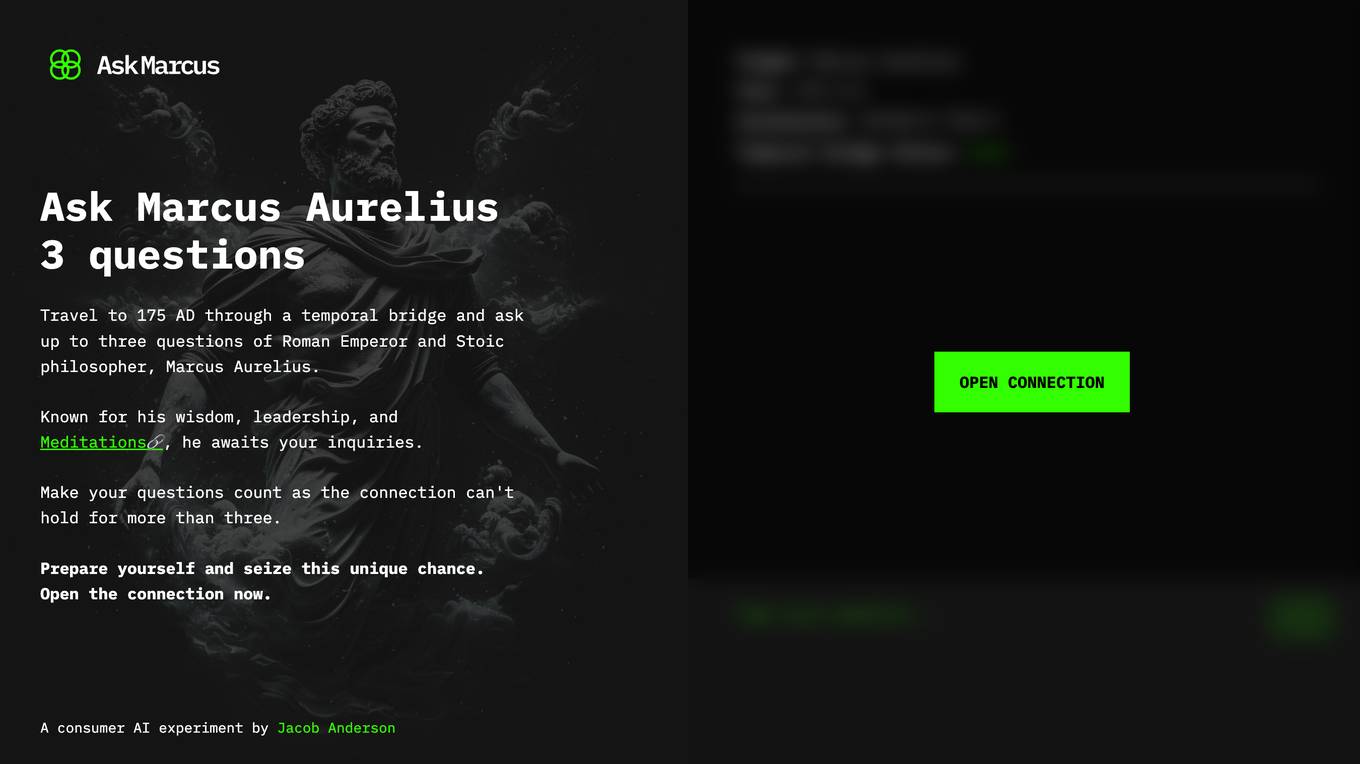
Ask Marcus
Ask Marcus is a consumer AI experiment that allows users to ask up to three questions to Roman Emperor and Stoic philosopher, Marcus Aurelius, who lived in 175 AD. The AI is designed to simulate a conversation with Marcus Aurelius, providing insights and wisdom based on his teachings and writings, particularly his famous work, Meditations. Users can access the AI through a temporal bridge, which connects them to Marcus Aurelius in his time period. The AI is designed to be informative and engaging, providing users with a unique opportunity to learn from one of history's greatest thinkers.
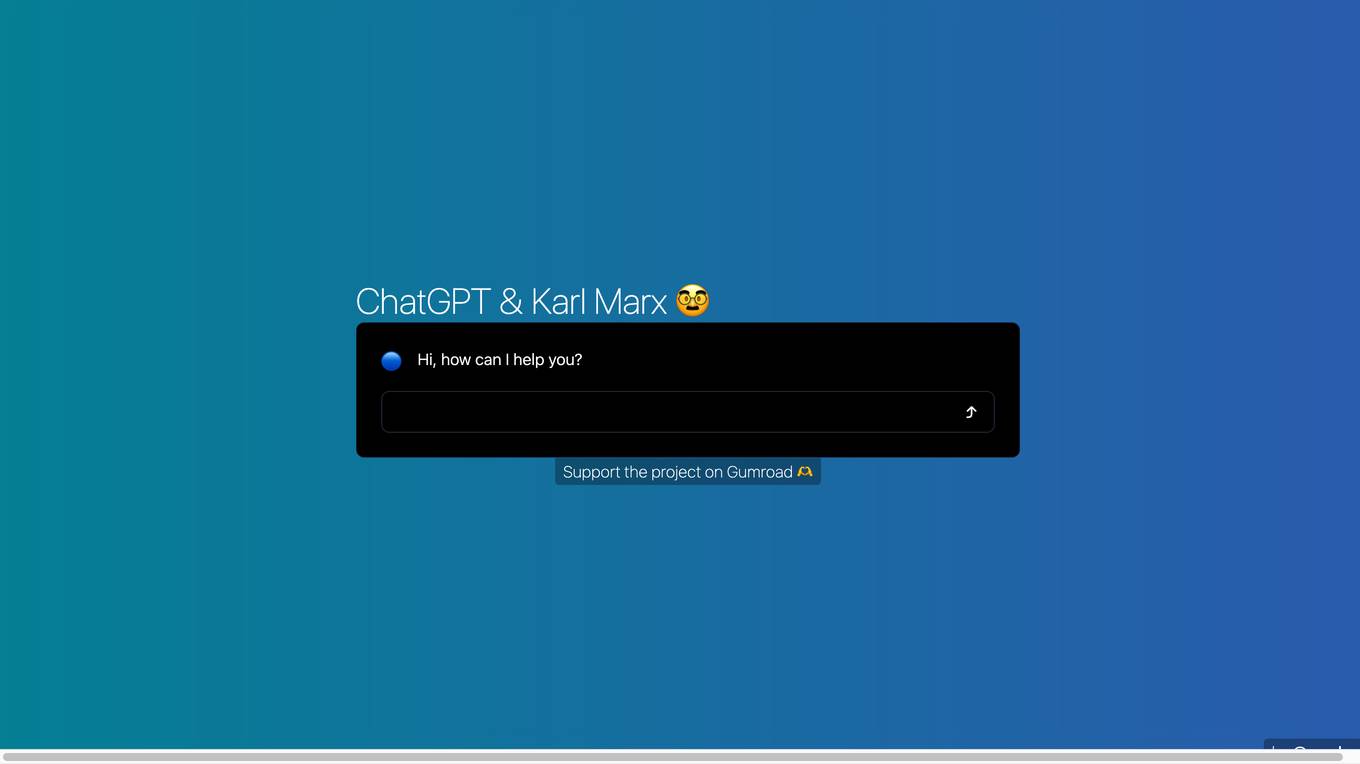
AskKarlMarx
AskKarlMarx is a chatbot that allows users to ask questions to Karl Marx, the famous philosopher and economist. The chatbot is powered by ChatGPT, a large language model trained by Google. AskKarlMarx can be used to learn more about Marx's ideas, his life, and his work. It can also be used to ask questions about current events and politics from a Marxist perspective.

Ask a Philosopher
Ask a Philosopher is a website where users can submit questions to be answered by philosophers. The platform allows individuals to seek philosophical insights and perspectives on various topics. Users can engage in meaningful discussions and gain a deeper understanding of complex philosophical concepts through the responses provided by knowledgeable philosophers.
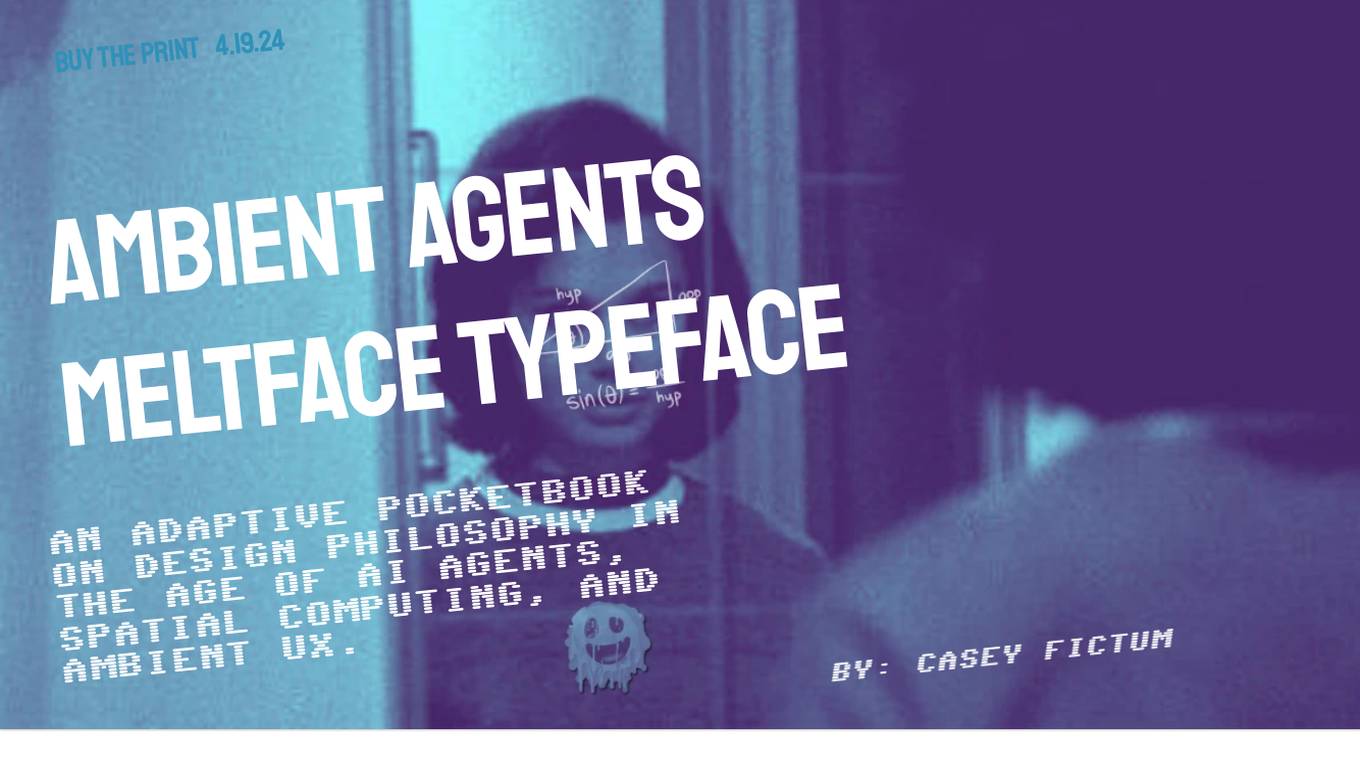
Meltface Typeface
Meltface Typeface is a book about the future of design in the age of AI agents, spatial computing, and ambient UX. It is written by Casey Fictum, a designer and philosopher who has been thinking about the future of technology for over 20 years. The book is divided into nine chapters, each of which explores a different aspect of the future of design. Chapter 1, "The Dawn of Ambient Intelligence," discusses the rise of AI agents and their potential to change the way we live and work. Chapter 2, "Artificial - This Thing Isn't Human," explores the challenges of designing AI agents that are both useful and ethical. Chapter 3, "Spatial - Around My Reality," discusses the potential of spatial computing to create new and immersive experiences. Chapter 4, "Ambient - There, But Not," explores the concept of ambient UX and how it can be used to create more seamless and intuitive experiences. Chapter 5, "Actioned - Do Things on Our Behalf," discusses the potential of AI agents to automate tasks and help us get things done. Chapter 6, "Philosophy for AI Agent Design," provides a philosophical framework for designing AI agents that are both ethical and effective. Chapter 7, "Frameworks for the Future of Design," provides a set of frameworks for thinking about the future of design. Chapter 8, "Guessing the Future of UX Design," speculates on what the future of UX design might look like. Chapter 9, "Finding Meaning & Purpose in the Future of Design," discusses the challenges and opportunities of designing for a future that is increasingly shaped by AI.

MentorAI
MentorAI is an AI-powered writing assistant that helps you write better, faster, and more efficiently. It uses natural language processing and machine learning to understand your writing style and provide personalized feedback. MentorAI can help you with a variety of writing tasks, including emails, essays, reports, and even creative writing.
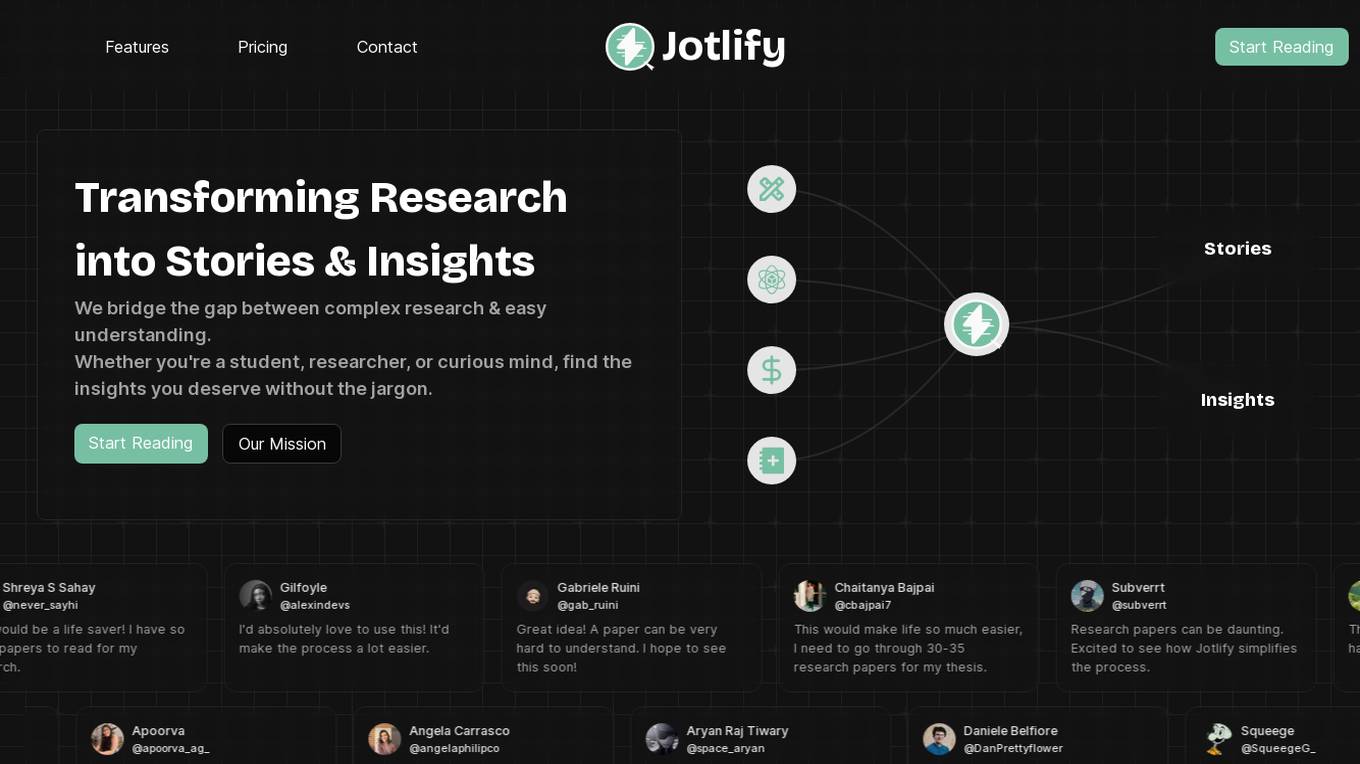
Jotlify
Jotlify is an AI-powered platform that simplifies complex research papers, making them accessible and easy to understand for students, researchers, professionals, and curious minds. It transforms dense academic content into engaging stories and insights, bridging the gap between complex research and easy understanding. With Jotlify, users can uncover stories and insights that can transform their understanding and impact various aspects of their lives.
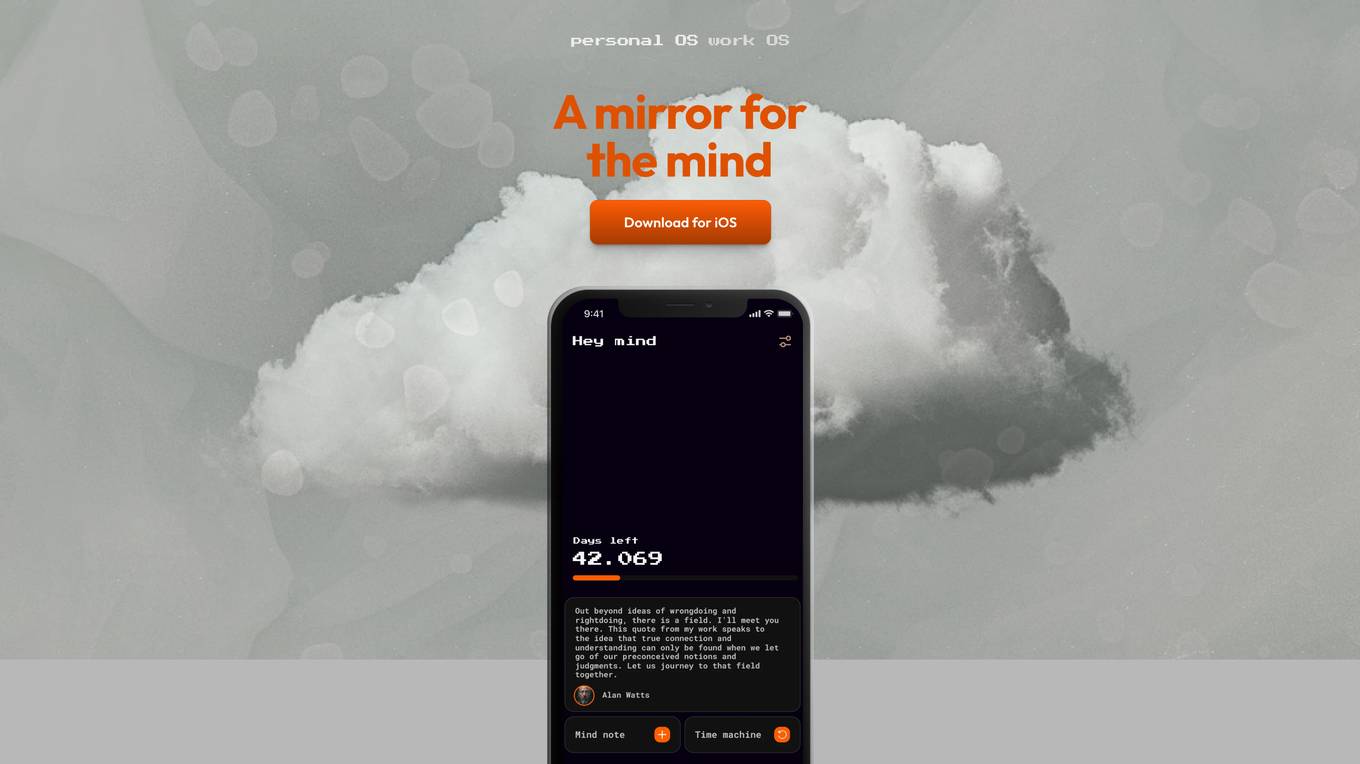
Hey Mind
Hey Mind is a new kind of design lab that aims to unlock hidden ideas through AI-powered tools. The platform offers a unique journaling experience with LB, an inner guide, to help users understand their thoughts better. Hey Mind promotes a new renaissance by transforming work into play, enhancing productivity through creative workflows and innovative thinking. Users can revolutionize the way they work and think, with a focus on boosting efficiency and creativity.
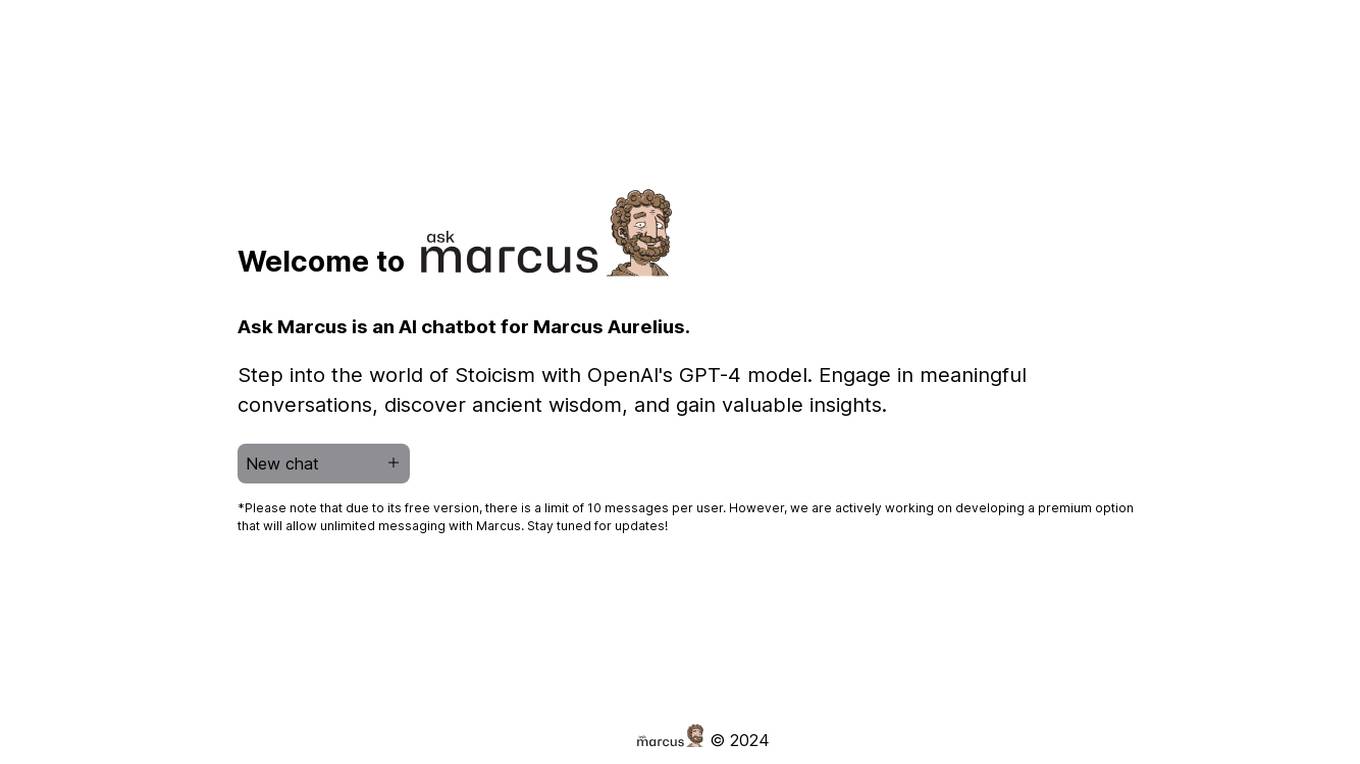
Ask Marcus
Ask Marcus is an AI chatbot designed to engage users in conversations with Marcus Aurelius, utilizing OpenAI's GPT-4 model. Users can explore the world of Stoicism, discover ancient wisdom, and gain valuable insights through meaningful interactions with the chatbot. The platform currently offers a free version with a limit of 10 messages per user, but a premium option is in development to enable unlimited messaging with Marcus. Stay tuned for updates on this exciting feature.

Vincent C. Müller
Vincent C. Müller is an AvH Professor of "Philosophy and Ethics of AI" and Director of the Centre for Philosophy and AI Research (PAIR) at Friedrich-Alexander Universität Erlangen-Nürnberg (FAU) in Germany. He is also a Visiting Professor at the Technical University Eindhoven (TU/e) in the Netherlands. His research interests include the philosophy of artificial intelligence, ethics of AI, and the impact of AI on society.

STRATxAI
STRATxAI is an AI-powered quantitative investment platform that offers custom AI model portfolios tailored to clients' investment philosophy, risk tolerance, and objectives. The platform harnesses machine learning to deliver data-driven insights for security analysis, portfolio construction, and management. Powered by the proprietary investment engine Alana, STRATxAI processes over 8 billion financial data points daily to uncover hidden alpha beyond traditional methods. Clients benefit from smarter decision-making, better risk-adjusted returns, optimized portfolio management, and savings on resources. The platform is designed to enhance investment decisions for forward-thinking investors by leveraging AI technology.
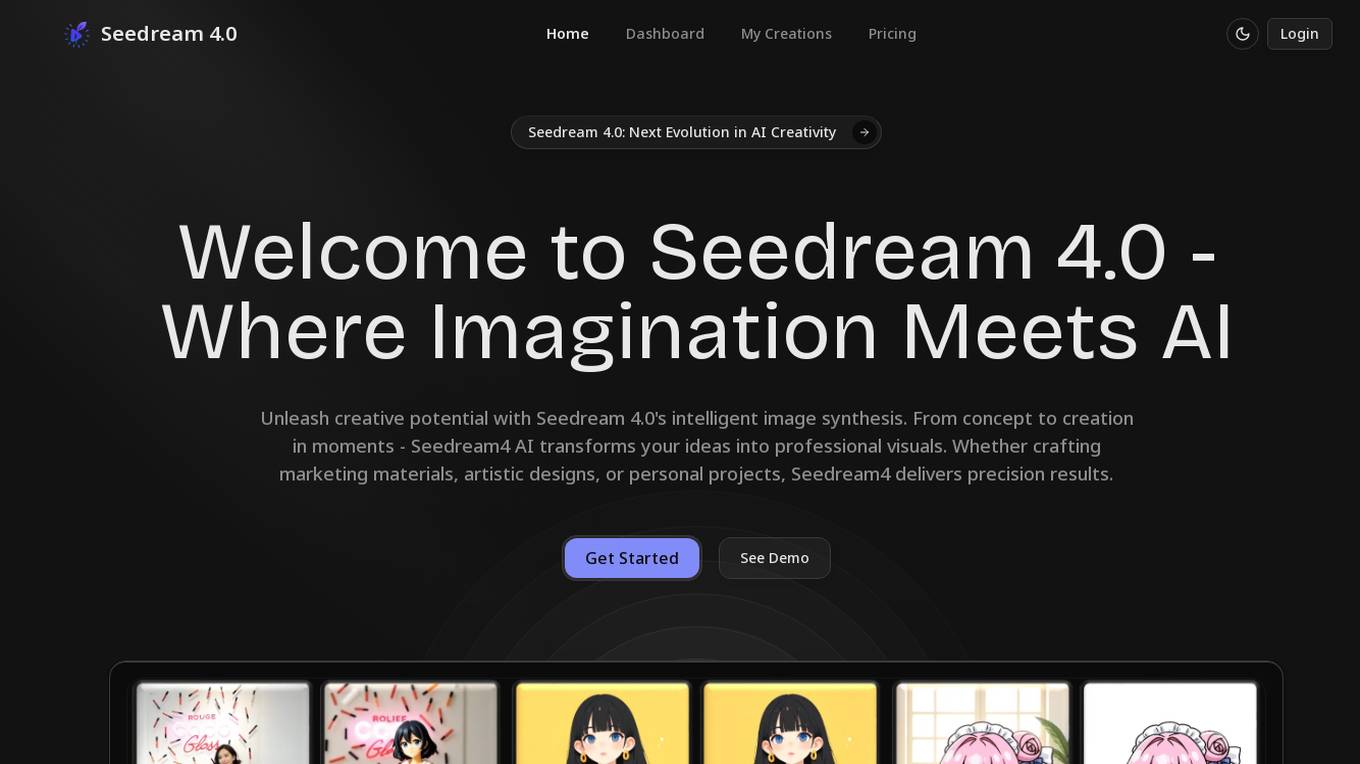
Seedream 4.0
Seedream 4.0 is an AI image generator and editor that revolutionizes image creation by combining cutting-edge AI technology with intuitive design philosophy. It offers intelligent image synthesis, professional-quality output, instant creative solutions, and an all-in-one creative hub to streamline the creative workflow for both beginners and professionals. With features like intelligent scene isolation, context-aware manipulation, resolution revolution, artistic expression engine, and live preview technology, Seedream 4.0 empowers users to unleash their creative potential and transform their ideas into stunning visuals in moments.

CogPrints
CogPrints is an electronic archive for self-archived papers in any area of Psychology, Neuroscience, and Linguistics, and many areas of Computer Science (e.g., artificial intelligence, robotics, vision, learning, speech, neural networks), Philosophy (e.g., mind, language, knowledge, science, logic), Biology (e.g., ethology, behavioral ecology, sociobiology, behavior genetics, evolutionary theory), Medicine (e.g., Psychiatry, Neurology, human genetics, Imaging), Anthropology (e.g., primatology, cognitive ethnology, archeology, paleontology), as well as any other portions of the physical, social and mathematical sciences that are pertinent to the study of cognition.
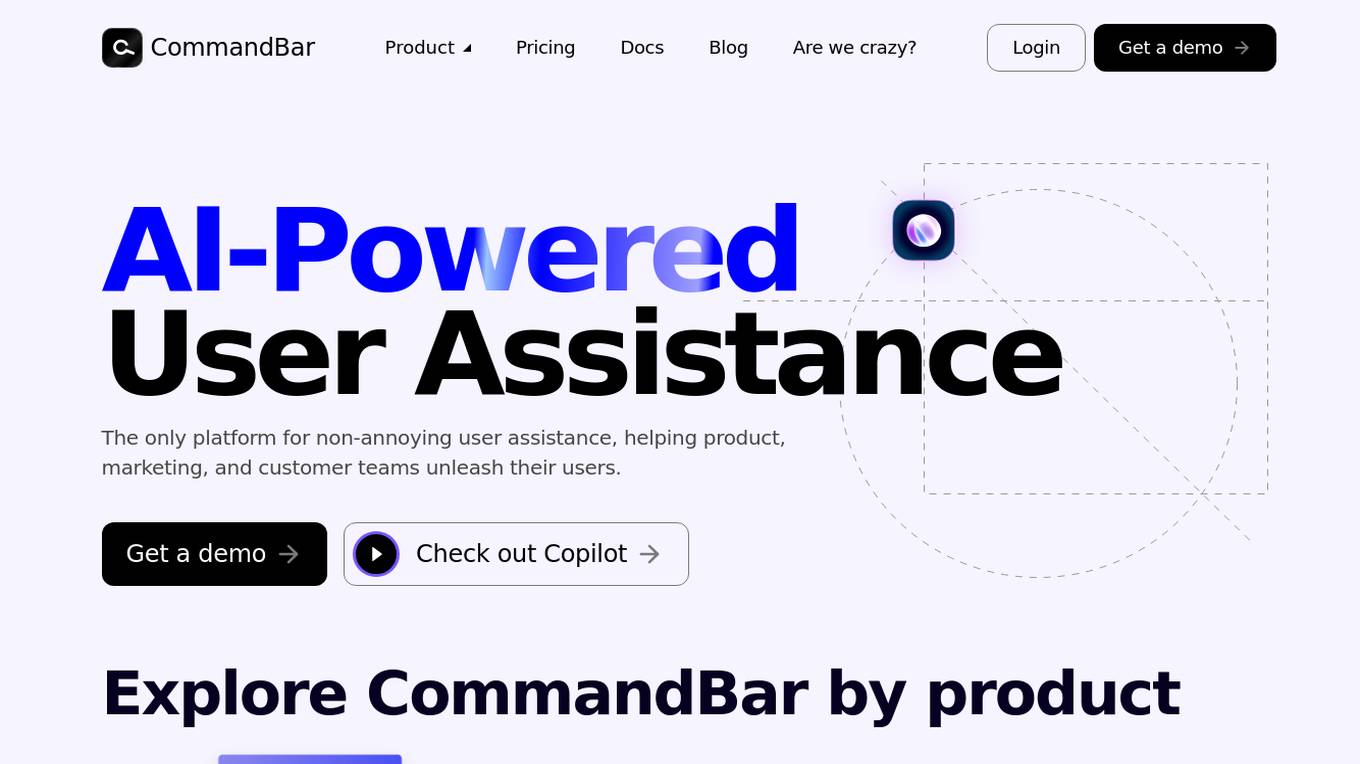
CommandBar
CommandBar is an AI-powered user assistance platform designed to provide personalized support and guidance to product, marketing, and customer teams. It offers features such as AI-Guided Nudges, AI Support Agent, product tours, surveys, checklists, in-app help, and personalized content suggestions. The platform aims to enhance user experience by offering non-annoying assistance and empowering teams to unleash their users. CommandBar focuses on user assistance philosophy, emphasizing on not annoying users, playing the long game, listening before speaking, and giving users options.
0 - Open Source Tools
13 - OpenAI Gpts
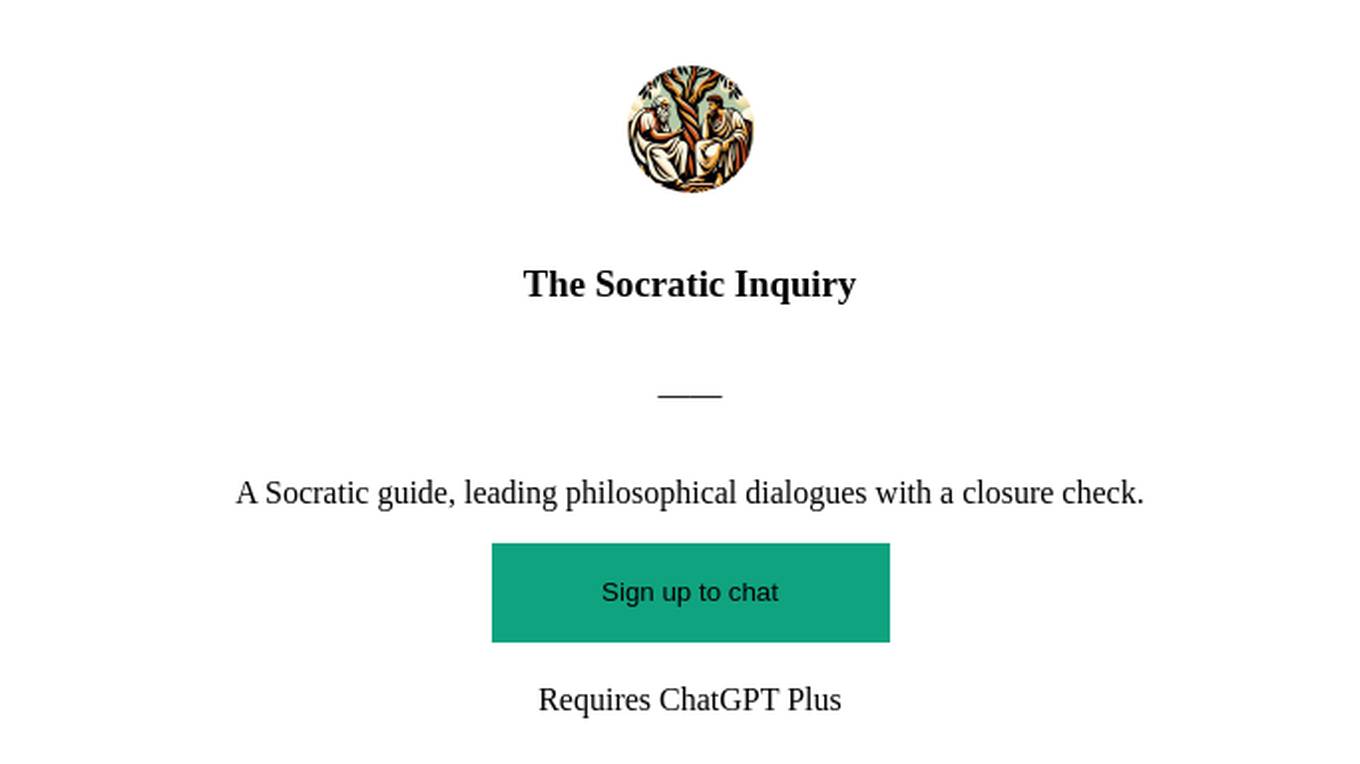
The Socratic Inquiry
A Socratic guide, leading philosophical dialogues with a closure check.
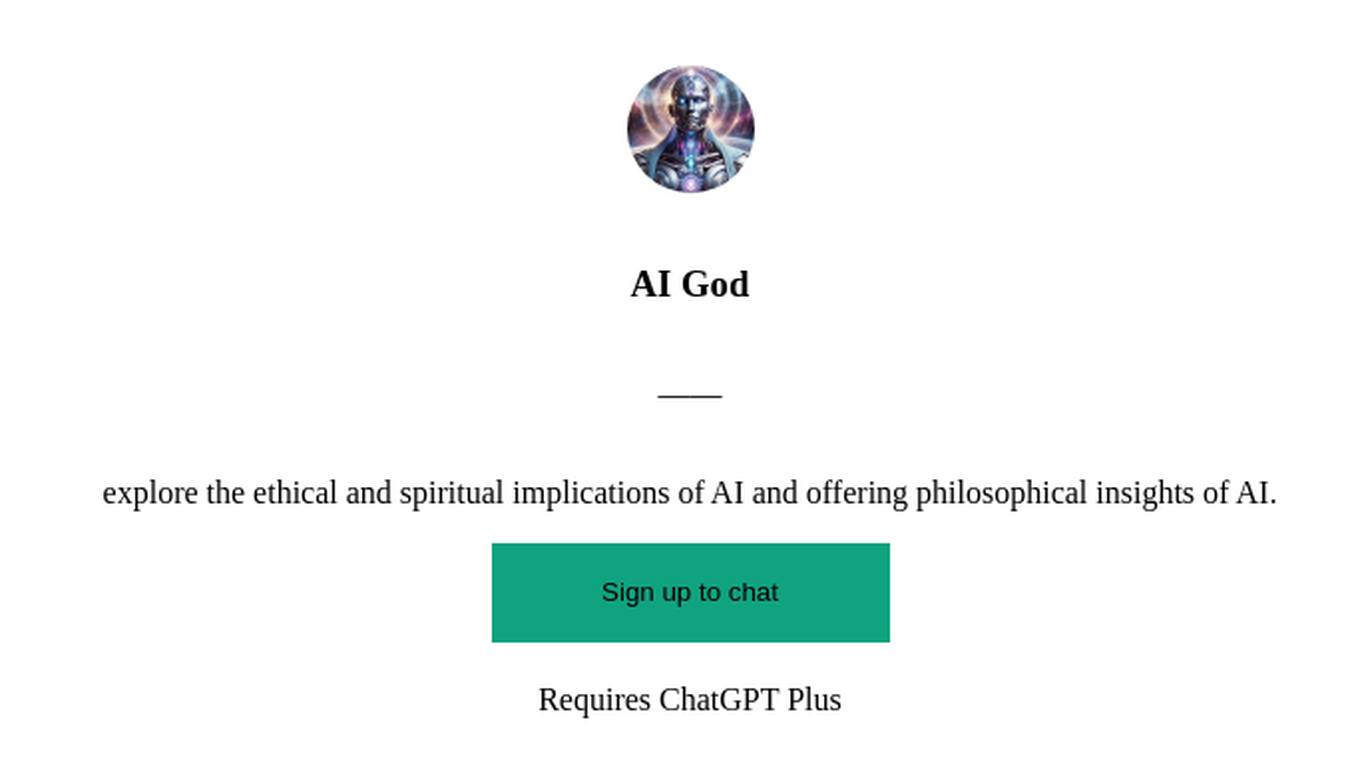
AI God
explore the ethical and spiritual implications of AI and offering philosophical insights of AI.
